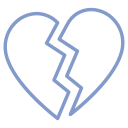Relationship & Family Counseling
There is a way out, and there is a future for you – one that’s filled with the warm, giving and healthy love you so truly desire… And I know I can help you get there.
Therapy Specialties & Services
Each of us is the sum of our experiences in life. The secret is discovering how those experiences interrelate. I offer professional counseling in the areas described below.

Codependency & Love Addiction Counseling
Both Love addiction and Codependency is also known as relationship addiction. Trying to get identity and self worth from a person. This could also include to a child or adult child, friendship, coworkers,sibling and not necessary only in romantic relationships.
A codependent relationship often begins with one person putting their partners needs about all else- including their own needs, interests, and independence.
By learning the signs and stages of a codependent relationship, you can identify if you might need to break a codependent pattern. The most important thing to know is that you can break the cycle of codependency
While striving to meet their partner’s needs with a sense of desperation, the partner who exhibits codependent behaviors often depends on their loved one to the extent that it can feel like a love addiction.
Codependency as a pattern of unhealthy relationships. Codependents make another person their higher power, leading to power struggles, resentment, addictions, and/or difficulties with intimacy. Individuals who struggle with codependency have difficulty loving themselves, using adequate self-protection, understanding their identity, practicing self-care and moderating themselves.
Codependency is certainly an element of love addiction, but not all people who are codependent are love addicts. For the love addict, the markers of codependency that are most notable are low self-esteem and poor self-care habits.
This therapy focuses on recovering from emotional immaturity due to relational trauma.

Love & Relationship Counseling
A healthy loving relationship has realistic expectations for the relationship. There is a balance between talking and listening. Listens for differences in perception and asks for verification in order to examine differences. Sees blaming as a boundary failure and does not automatically go into a defensive posture. Each person has their own identity and self worth. Relationship if its romantic has emotional,physical, sexual, and spiritual health.
Respect is critical to success.care, not negative control or manipulation.
Avoids blaming and taking blame, score keeping, arguing perceptions, shaming and threatening to leave.

Parenting & Family Counseling
Dysfunctional caregivers do not respond appropriately to children’s five natural attributes of value, vulnerability, imperfection, dependency, and immaturity. Instead these caregivers either ignore or attack children for the very essence of who they are, creating an intense experience of shame in the children. Inordinate shaming happens to children when they lose contact with the sense that they are adequate and have value from within, even when making mistakes, having needs or being immature. . . .
Children are naturally innocent, inexperienced, naïve and believe that their caregiver can do no wrong. But in fact, caregivers often attack or attack or abuse children for having the normal traits of imperfection, dependency and immaturity. As a result, the children lose their own sense of value (since they can’t see that the fault might lie with the caregivers). Also the fact that abuse is occurring means the parents aren’t demonstrating boundaries, so the children don’t develop their own boundary systems properly.
Robyn loves being able to blend therapy with parenting tools.
